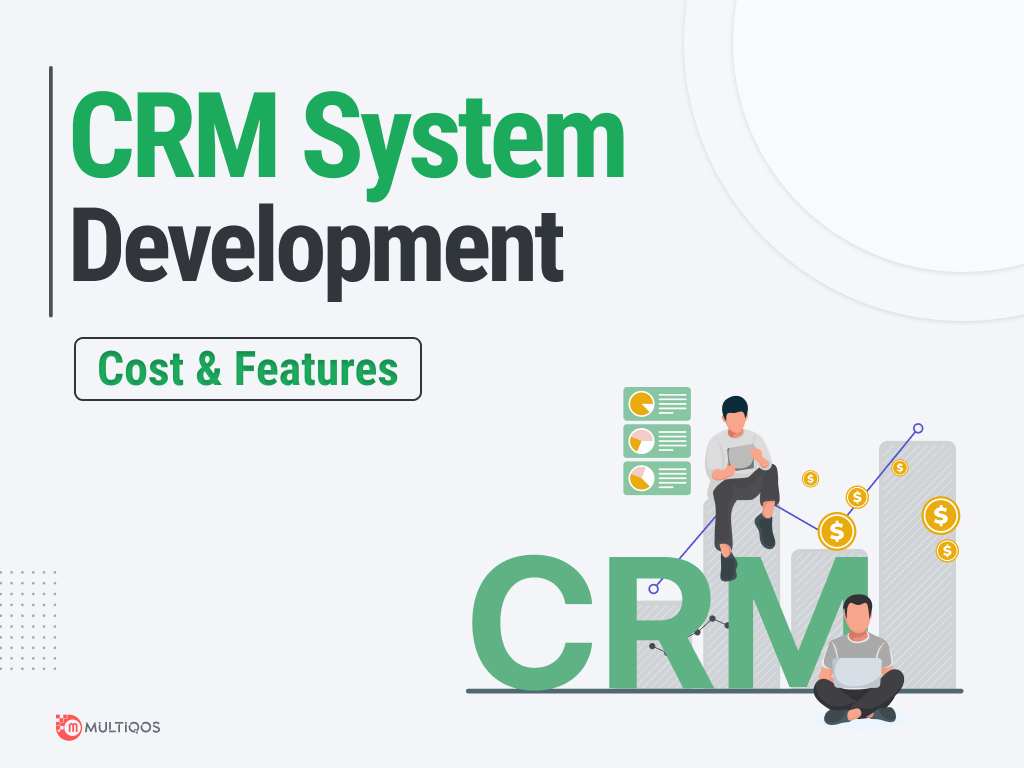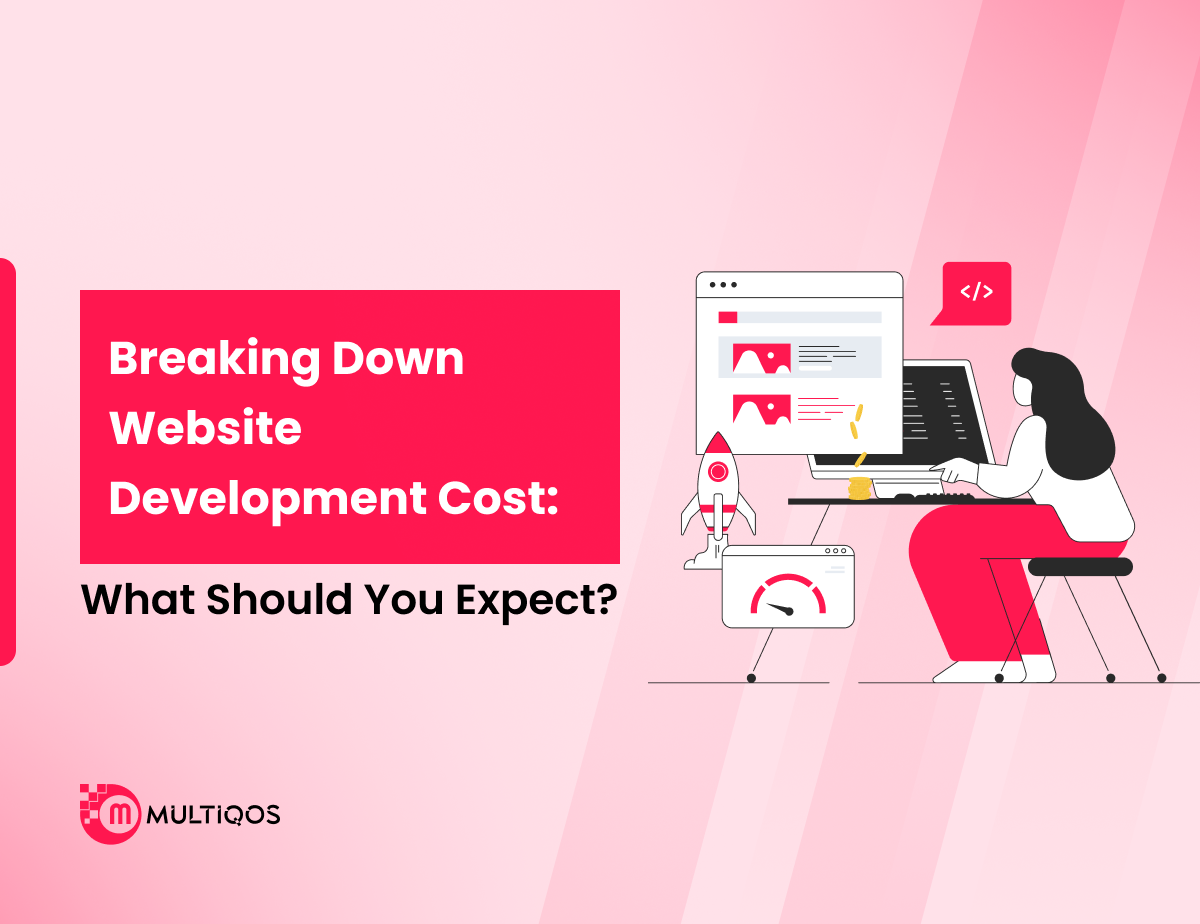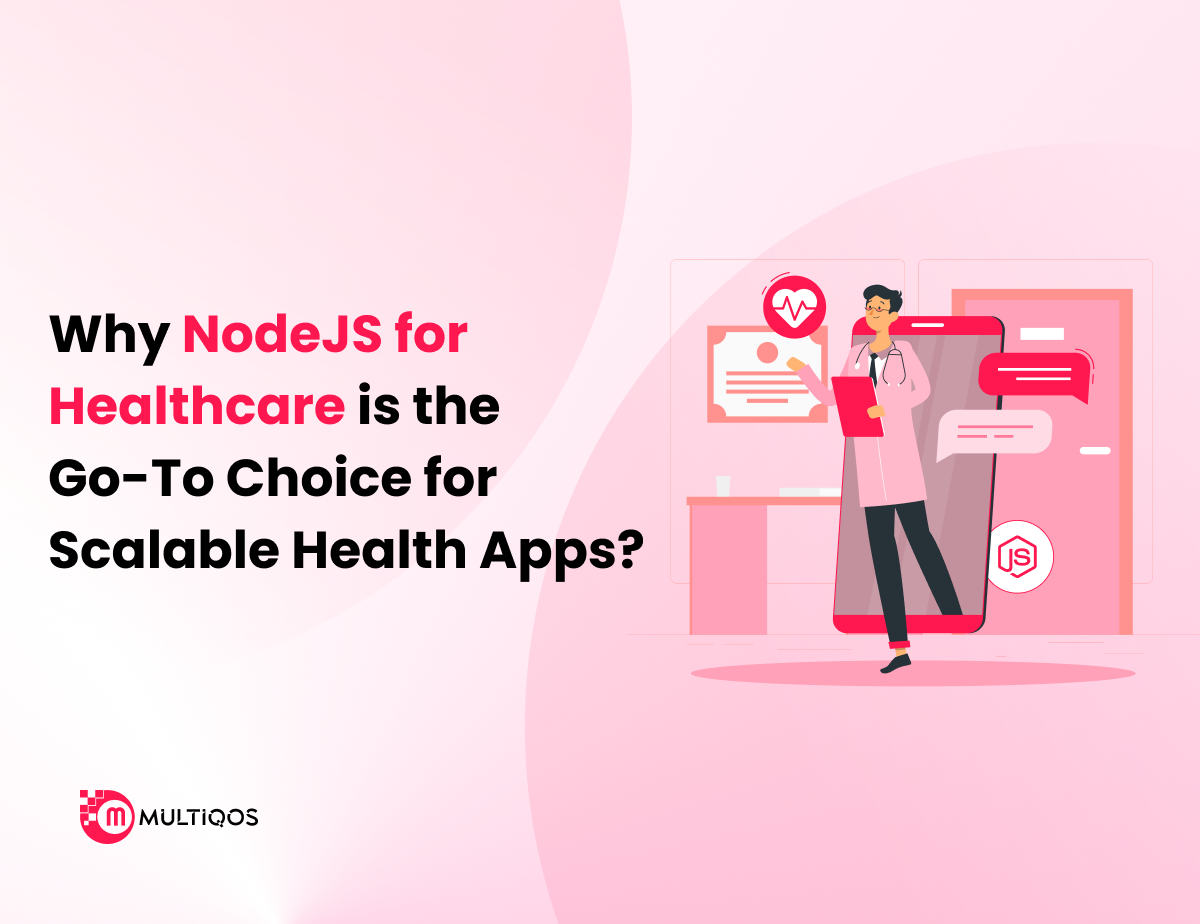How Much Does it Cost to Build a CRM System? – An Extensive Guide

Overview
There isn’t a single person in the business world who hasn’t dealt with CRM systems at some point. Now, “big data” about customer behavior serves as a “lighthouse” in decision-making processes ranging from which ad to buy to which product category to invest in.
Fortunately, companies that use CRMs benefit from 74% better customer relationships, a 66% increase in sales quota, and a 50% increase in employee productivity. This is especially true in the Retail and Ecommerce industry, where understanding customer preferences and behavior is critical for success. So, without a doubt, a CRM is an enterprise mobility solution that every company should consider, and nothing can prevent you from developing your own customized CRM system.
If you’re also considering this option, what baseline features do you need to implement? How much does it cost to build a CRM software? These are the few issues we’ll look at in this article to help you hire offshore developers.
Types of Customer Relationship Management Software
The digitalized market is overflowing with various CRM software choices to meet the needs of customers. You must select any cloud-based CRM apps to help you achieve your business goals, or even build a custom CRM software for your business to meet specific needs more effectively.
- Analytical CRM
This type of CRM software is primarily intended for monitoring your company’s real-time analytics and data. The primary goal of this type of CRM software is to assist you in business planning and decision-making. You can obtain information, wealth, and data about your contacts using analytical CRM. You can gain better statistical insights and comprehensive business analytics data. With analytical CRM, you can see how well your company is doing and what collaborative decisions you need to make with your team to improve workflow and revenue generation.
- Operational CRM
Operational CRM software is primarily concerned with business operations. This CRM software can automate your sales and streamline your business. This type of CRM includes contact management, lead management, sales pipeline, marketing workflow management, and a help desk. This is suitable CRM software for managing your customer service. You can also track the sales funnel to see how many leads were converted and what you should do with those in the future.
- Collaborative CRM
Collaborative CRM is the best option for increasing the efficiency of your team’s communication system. Teams can now easily communicate with one another via collaborative CRM thanks to a clear data-sharing process. Businesses generally prefer this type of platform for shared systems and group discussions. This platform allows team members to easily track their activities and share files and documents.
These are some of the best custom CRM software platforms for your organization, which you can select based on your needs. If you require three of them, you can customize them and combine three CRM types into a single platform. You can even use Flutter web development to build a seamless, cross-platform CRM experience that works across all devices. The choice is all yours!
Ready-Made CRM vs. Modification vs. Custom CRM
Let’s take a quick snap at the main options for getting your company’s customer relationship management system. There are three of them:
- Create a custom CRM from scratch
- Customize existing CRM solutions (i.e., on top of Salesforce or Dynamics 365)
- Purchase a market-ready CRM software license
Custom CRM Software Development
Pros
- Include the required system performance level
- Integrate with any third-party platforms you require to achieve high compatibility.
- Encrypt your system’s sensitive data using the most up-to-date security protocols.
- Build a single IT infrastructure for all departments to quickly achieve high flexibility and scale.
- In the long run, you’ll save money because you won’t have to pay for each new CRM user and support.
- Create an on-demand CRM system tailored to your specific business needs and challenges.
Cons
- The initial custom CRM development cost is relatively high.
- It takes a long time to build a custom CRM from scratch.
- Costly maintenance because you get a customized IT infrastructure that necessitates the assistance of experienced technical specialists.
Existing CRM Customization
Pros
- You can save many bucks by simply building a few specific features on top of ready-made solutions like Salesforce and Dynamics 365.
- Save a lot of time because most features and infrastructure are already ready for use.
- Avoid complicated technical issues such as security, integrations, and project development.
- Get enough customization and flexibility for your company.
- Automatically receive platform updates and new features.
Cons
- You must still purchase licenses for each new CRM user.
- You still don’t have complete flexibility regarding features and integrations because your selected CRM system constrains them.
Market Ready CRM Software
Pros
- Save time and begin using a CRM within a few minutes/hours.
- Get a lot of functionalities out of the box while avoiding custom web development and dealing with many technical issues.
- Utilize existing integrations with third-party tools.
Cons
- Low flexibility because on-demand features tailored to your specific business needs are not available (if not provided by a CRM software vendor)
- Spend the extra money on features you may never use.
- Long-term CRM development costs are high because you must purchase licenses for each new CRM system user.
- Limited customization options provided by the CRM software vendor Potential future scalability issues as scaling is likely to be limited by a platform.
- The learning curve is steep, and it may take a long time to train your staff.
Also Read: Hubspot Vs Salesforce – Which CRM Is Best for Your Business?
Crucial Features of Operational CRM Software
When it comes to sales automation, operational CRMs are especially useful. Let’s have a look at the compiled list of the features that perfect sales CRM software should have:
Buyer Experience Scoring
A CRM can store and update all information about a customer’s interaction with your product or service. You can use this information to nurture satisfied customers by creating content for email drip campaigns or promotional offers.
Tools for Reporting
One of the most beneficial aspects of sales automation is the reduced time required to prepare sales reports. The CRM dashboard displays key performance indicators for sales, allowing you to refer to tables, use convenient filtering options, and extract advanced data for each sales representative.
Customer Journey Mapping
You can detect selling stages where most drop-offs occur, identify weak points of contact (POCs), and plan to fix them using operational CRM.
Dashboard Templates
Corporate users with complex organizational structures will appreciate this feature. A CRM reduces bureaucracy by allowing you to create, save, and share various views. You can adjust sales statistics in this manner for different roles, departments, or reporting purposes.
Options for Exporting
With an operational CRM, you can process data in bulk, save it to your computer, and print it as needed because it allows you to export the gathered information in popular formats such as CSV, TSV, XLS, PDF, and others.
Communication History
Communication with customers can occur via various channels, including emails, SMS, messengers, phone, and others. A CRM lets you keep track of all interactions with prospective and existing customers in one place, so you can always see the main concerns and inputs from the conversations.
Calendar Synchronization
We all get messed up in the shuffle of tasks from time to time. A functional CRM can notify you of the next scheduled appointment, or sales call with the customer, allowing you to stay organized at all times.
How Much Does It Cost to Build Custom CRM Software?
The initial cost for CRM development services typically ranges from $50,000 to $100,000, depending on the project scope and requirements for the first build.
Most existing CRM systems and cloud services are typically priced per user. This means that as your team and company expand, you will be forced to pay more on an ongoing basis. If you enable additional CRM and custom module features, you may be required to make other monthly payments. Another module that needs attention is one popular CRM vendor’s service pricing. CRM vendors’ enterprise-sized packages are typically priced at $125 per user per month.
Obviously, your company needs to have built a powerful, custom CRM system that would require far fewer investments in maintenance and possibly tech support for the same amount of money.
Cost to Build Custom CRM Software
The following features as per different modules will aid you in determining the custom CRM development cost that can be delivered as software and as a service solution-
- Sales Module:
- Marketing Module:
- Support Module:
Factors Impacting the Custom CRM Development
Consider the following factors while custom CRM development to adjust the making of such software as per your budget and hire offshore developers accordingly-
App Development:
A complex design application costs more to develop than a simple one. An effective UI/UX design can boost customer retention. So, never accept low standards and always provide the best user experience possible through appealing design.
Team Size:
The size of the web development team will affect the cost. To create an effective CRM tool, you’ll need a team of developers, managers, designers, and testers. MultiQos has sufficient resources and develops the application on time and within budget. That’s why it is recommended to hire website developers of MultiQos to get the most affordable customized CRM software.
Platforms:
The cost of CRM tool development varies depending on the platform you select. Compared to iOS, CRM development on Android necessitates many tests. It may lengthen and increase the cost of development. However, iOS app development is often more streamlined due to fewer device variations, which can reduce testing time and overall complexity.
Final Thoughts
CRM is as essential to business today as air. Simultaneously, standard out-of-the-box solutions do not meet all business requirements. As a result, it is preferable to order a custom CRM if you require a truly reliable, unique, and functional product. In it, the developer will accurately consider everything you require and will also be able to provide turnkey services for further improvement, personnel training, service, and technical support.
The high cost of CRM software development is cited as one of the primary reasons why not everyone chooses it. However, we at MultiQos, ranked the best web Development Company, know a few tricks to make custom CRM development affordable. And you can always start with an MVP, which is less expensive than a full CRM system.
Let’s Create Big Stories Together
Mobile is in our nerves. We don’t just build apps, we create brand. Choosing us will be your best decision.
CRM System Development Cost
As you can see, the custom CRM cost could be in the thousands of dollars. However, having a product like that may provide benefits that outweigh the costs. Thereby, you should exercise caution before opting for custom development. The following are the key scenarios in which a custom CRM is required:
Your CRM software serves as the operating system that makes the entire process seamless, intending to manage and maintain great relationships with customers and potential clients. It records every customer interaction and uses that data to monitor pipelines, automate tasks, generate reports, and display real-time metrics, among other things.
An effective CRM platform expands your understanding of customers and their preferences, making it easier to tailor each interaction for the best results. Clients are happier and more successful when interactions are tailored to them. CRM applications also assist organizations in centralizing and streamlining communication, increasing project efficiency, and decreasing errors.
Get In Touch







